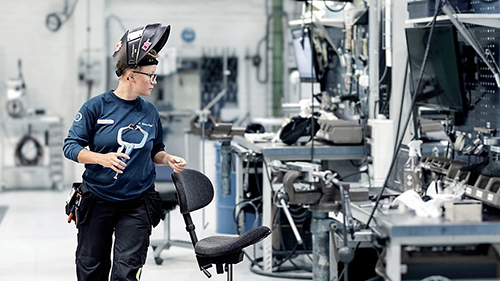Tetra Pak and Poka, a connected factory worker platform, are collaborating to offer workers tools and training to accelerate zero waste processes in food manufacturing plants.
It is reportedly the first global and scalable connected workforce service that Tetra Pak will roll out as part of its new training and support solution.
According to the UN Sustainable Development Goal 12, a range of entry points are required for promoting responsible consumption and production, and this can be achieved by producing more with less, increasing resource efficiency and promoting sustainable practices.
Poka states it has helped manufacturers reduce equipment downtime by 5.9%, increase in worker productivity by 18% and decrease quality issues by 64%.
By equipping front line staff with the most up to date information they need to make fast decisions, manufacturers can maintain high standards of quality and food safety whilst minimising waste in the form of product, time, or cost.
“This collaboration is part and parcel of our journey to provide access to safe food and to do that in a sustainable way, even in our own production, factory floor processes using the resources and technologies available to us,” noted Roberto Franchitti, executive VP, Services & Quality at Tetra Pak.
“Through this partnership, supported by technology and smart solutions, the workforce will be able to increase efficiencies in food production, including the speed of production, reducing errors, minimising product waste and making quick, informed decisions.”
“At the same time, we believe humans should continue to be at the centre of food manufacturing innovation and management, with new digital solutions acting as an enabler of this change.”
Connected Workforce by Tetra Pak offers digital tools, devices and services designed to upskill frontline factory workers on the job to increase efficiency, eliminate waste and solve problems faster.
With Connected Workforce, technicians’ can continuously improve their operations by sharing best practices and problem solve faster across production lines.
It can also support both the onboarding of new staff, as well as existing frontline factory workers with better training and support.










